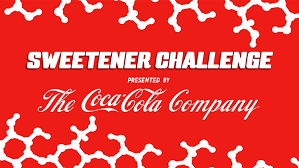“Dad needs your help to win a million dollars. And I’ll split it with you.”
That sentence, delivered to my children over the Labor Day weekend, got their attention faster than five years ago when I said, “I think it’s high time we got a puppy.” Both girls, now 20 and 15, momentarily stopped texting.
“How can we help?” asked the older one, sensing a financial windfall that would easily keep her in beer money for her remaining time as a college undergrad.
“We just need to develop an alternative to sugar and submit it to the Coca-Cola Company by January,” I said. “If they like it, we win the money!”
Sensing their enthusiasm wane — glances at their phones being my initial clue — I quickly summarized the beverage giant’s crowdsourcing challenge to find, according to its corporate website, a “naturally sourced, safe, low- or no-calorie compound that creates the taste sensation of sugar when used in beverages.”
Participants have until Jan. 18, 2018, to submit recipes, with the million-dollar winner being announced on Oct. 3, 2018.
It’s not the first time corporate America has turned to the public in search of new recipes. Baskin-Robbins and Vitamin Water are among several companies who’ve asked ordinary Joes and Josephines to create original flavors. I neglected to enter either contest, as I’m not a huge fan of flavored water or waiting in line behind a Little League team for a single scoop cone.
But Coke products? That’s a different story. My weekly writing is often Diet Coke-enhanced; I’ll even occasionally sneak a sugar-bombed regular Coke, as the taste reminds me of my carefree youth, when I could seemingly ingest any food substance without fear of the consequences. Oh, to be 11 again!
I also live in Cook County, Ill., home to a newly-implemented, and hotly debated, sweetened beverage tax. A 12-pack of Coke and even its artificially sweetened diet alternative now costs me a dollar more. A large Diet Coke at the McDonald’s drive-thru spiked by a whopping 60 cents. Unsweetened iced tea suddenly tastes delicious.
My financial woes were lost on my children.
“We don’t drink Coke,” they said in unison.
“Yes, but you are a whiz at finding healthy alternatives to create sweet-tasting products,” I reminded my high school sophomore. “Didn’t you just make brownies using black beans and avocadoes?”
Find that recipe on Pinterest, if you’re curious.
“And you,” I said, pointing to the college junior,” have completed two years of university-level chemistry.”
“Both of which I bombed,” she interjected.
I continued: “Plus, you should know something about the chemical composition of Coke. Remember when your friends filmed you dropping Mentos into a 2-liter bottle of Diet Coke? You told me that was a ‘chemistry experiment.’ By the way, we still have remnants of your experiment on the kitchen ceiling.”
“So, what do we have to do?” my eldest said begrudgingly.
“It’s quite simple,” I said, pulling up the contest rules on my iPhone. “We must create a novel molecule/compound that cannot be derived from stevia or Lo Han Guo, also known as Monk Fruit. But I’m sure you both knew that.”
Their blank stares implied the opposite.
“We also have to analyze our molecule’s level of degradation, whatever that means, and observe its stability in sunlight and pH. That stands for potential hydrogen. I Googled it.”
“Thanks, Dad.”
“Submissions can be no more than 20 pages. You can each write 10.”
“And what are you going to do?”
“It says you can also submit a video. I’m a professional comedian, so I thought we’d score some points if we could make the Coke judges laugh,” I said. “I was thinking of doing the presentation while a fountain of Mentos-enhanced Diet Coke erupted behind me.”
“Dad, the geek who lives down the hall from me couldn’t even do this,” my eldest said. “My advice would be to start drinking more water.”
Kids today. They just don’t want to make a million bucks.







